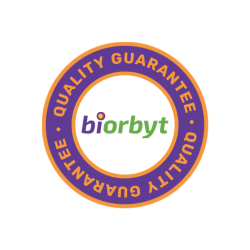You have no items in your shopping cart.
Cart summary

YES1 Protein, Human, Recombinant (His & GST)
Catalog Number: orb1955329
| Catalog Number | orb1955329 |
|---|---|
| Category | Proteins |
| Description | Proto-oncogene tyrosine-protein kinase Yes, also known as Proto-oncogene c-Yes, p61-Yes and YES1, is a cytoplasm protein that belongs to the protein kinase superfamily, Tyr protein kinase family and SRC subfamily. YES1 / c-Yes contains one protein kinase domain, one SH2 domain and one SH3 domain. It is thought that the subcellular distribution of Src-family tyrosine kinases, including c-Yes binding to the cellular membrane, is membranous and/or cytoplasmic. YES1 / c-Yes protein tyrosine kinase is known to be related to malignant transformation. YES1 / c-Yes and c-Src are the two most closely related members of the Src family of nonreceptor tyrosine kinases. Although there is much evidence to support redundancy in signaling between these two kinases. YES1 / c-Yes promotes the formation of the tight junction by phosphorylating occludin, while c-Src signaling downregulates occludin formation in a Raf-1 dependent manner. YES1 / c-Yes has tyrosine kinase activity. It promotes infectivity of Neisseria gonorrhoeae in epithelial cells by phosphorylating MCP / CD46. |
| Tag | His, GST |
| Purity | 98.00% |
| UniProt ID | P07947 |
| MW | 88.5 kDa (predicted); 75 kDa (reducing conditions) |
| Application notes | A Certificate of Analysis (CoA) containing reconstitution instructions is included with the products. Please refer to the CoA for detailed information. |
| Expression System | Baculovirus Insect Cells |
| Biological Origin | Human |
| Biological Activity | Proto-oncogene tyrosine-protein kinase Yes, also known as Proto-oncogene c-Yes, p61-Yes and YES1, is a cytoplasm protein that belongs to the protein kinase superfamily, Tyr protein kinase family and SRC subfamily. YES1 / c-Yes contains one protein kinase domain, one SH2 domain and one SH3 domain. It is thought that the subcellular distribution of Src-family tyrosine kinases, including c-Yes binding to the cellular membrane, is membranous and/or cytoplasmic. YES1 / c-Yes protein tyrosine kinase is known to be related to malignant transformation. YES1 / c-Yes and c-Src are the two most closely related members of the Src family of nonreceptor tyrosine kinases. Although there is much evidence to support redundancy in signaling between these two kinases. YES1 / c-Yes promotes the formation of the tight junction by phosphorylating occludin, while c-Src signaling downregulates occludin formation in a Raf-1 dependent manner. YES1 / c-Yes has tyrosine kinase activity. It promotes infectivity of Neisseria gonorrhoeae in epithelial cells by phosphorylating MCP / CD46. |
| Expression Region | A DNA sequence encoding the human YES1 (NP_005424.1) (Gly 2-Leu 543) was fused with the N-terminal polyhistidine-tagged GST tag at the N-terminus. Predicted N terminal: Met |
| Storage | -20°C |
| Note | For research use only |


